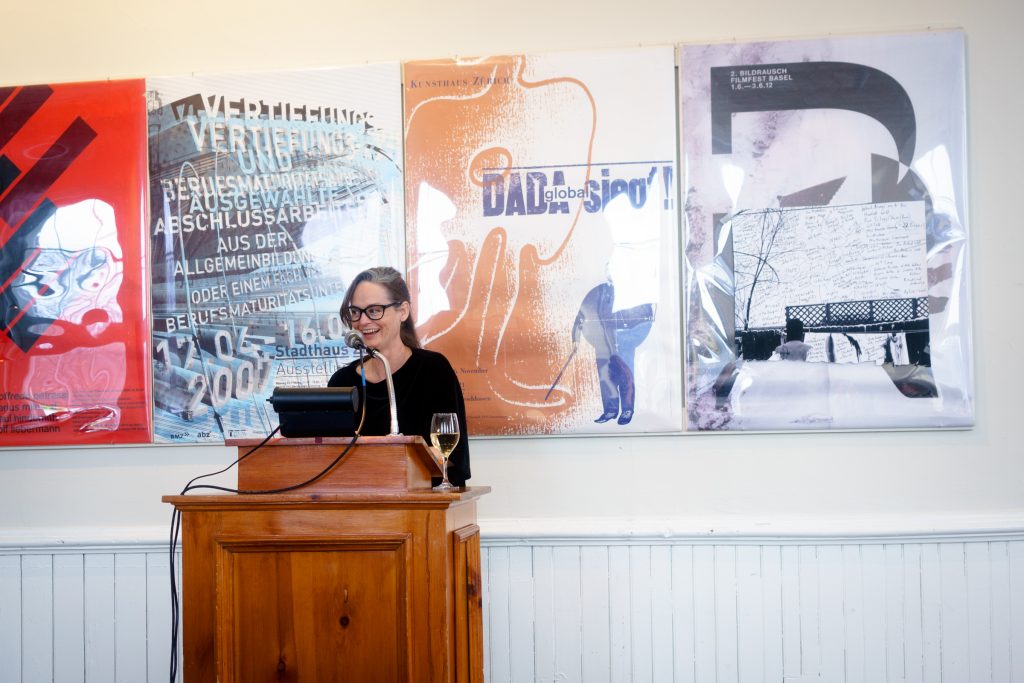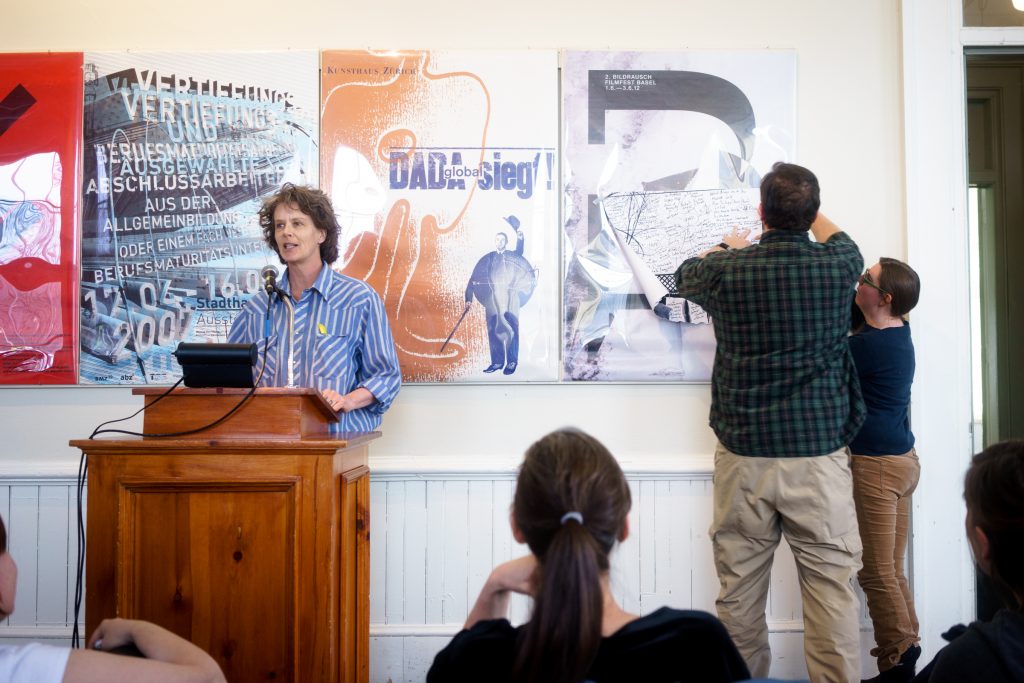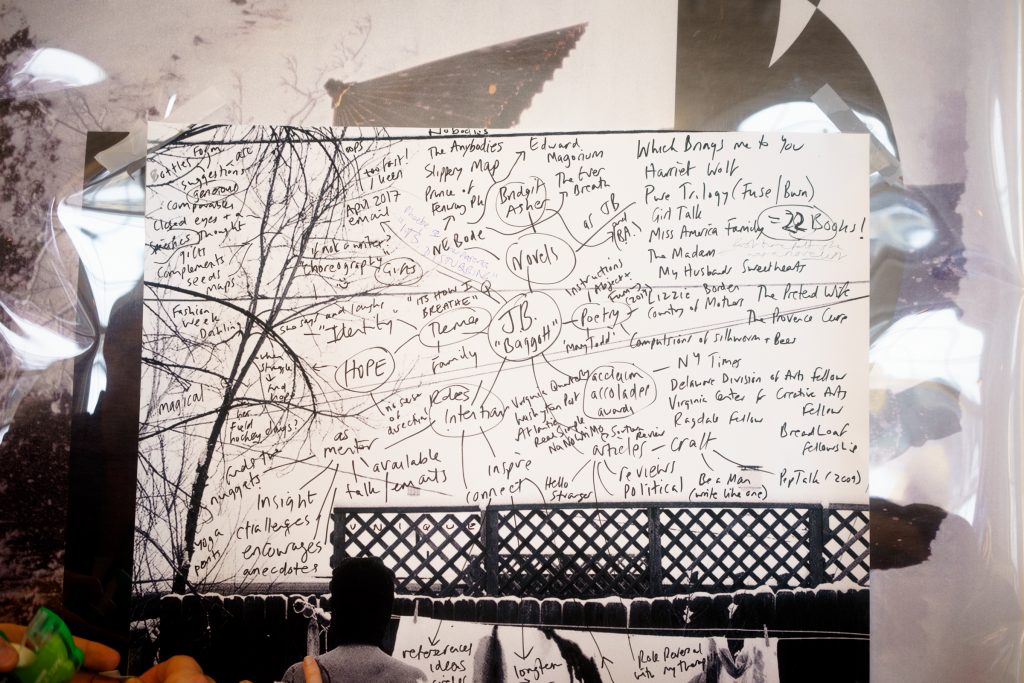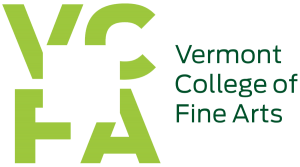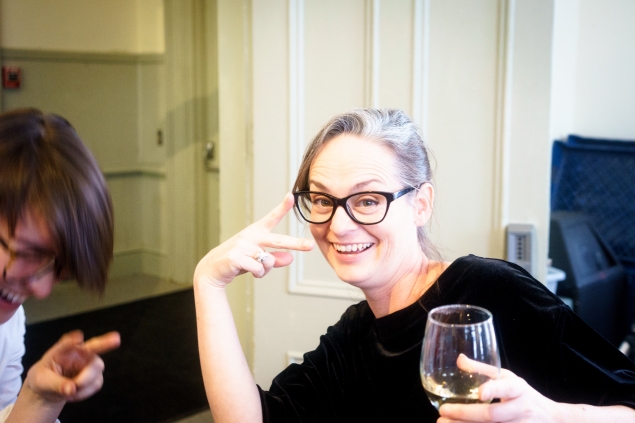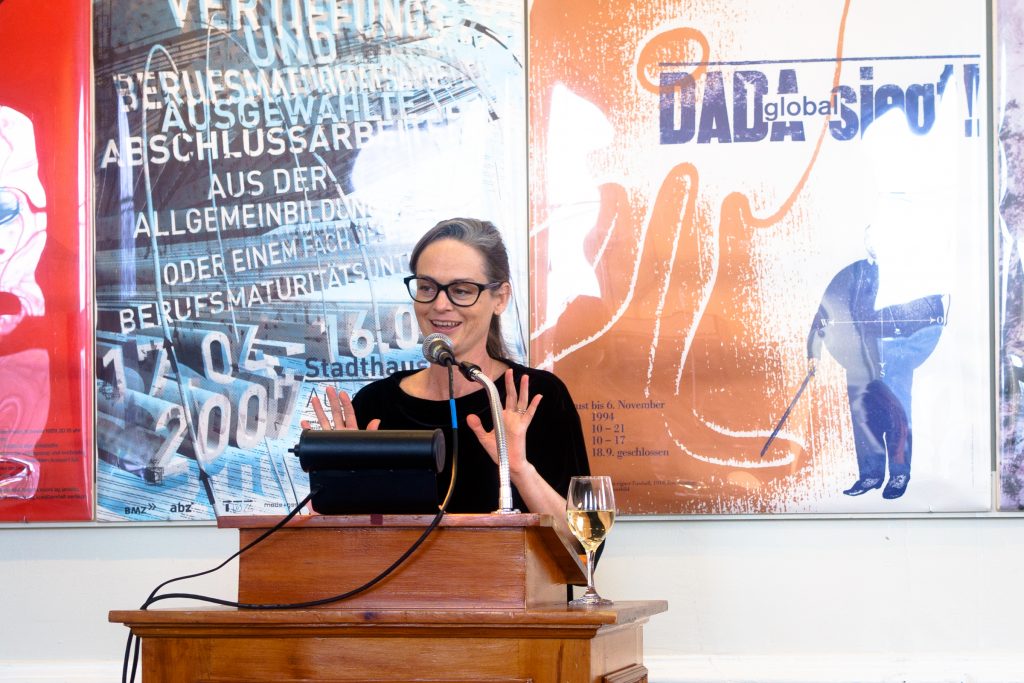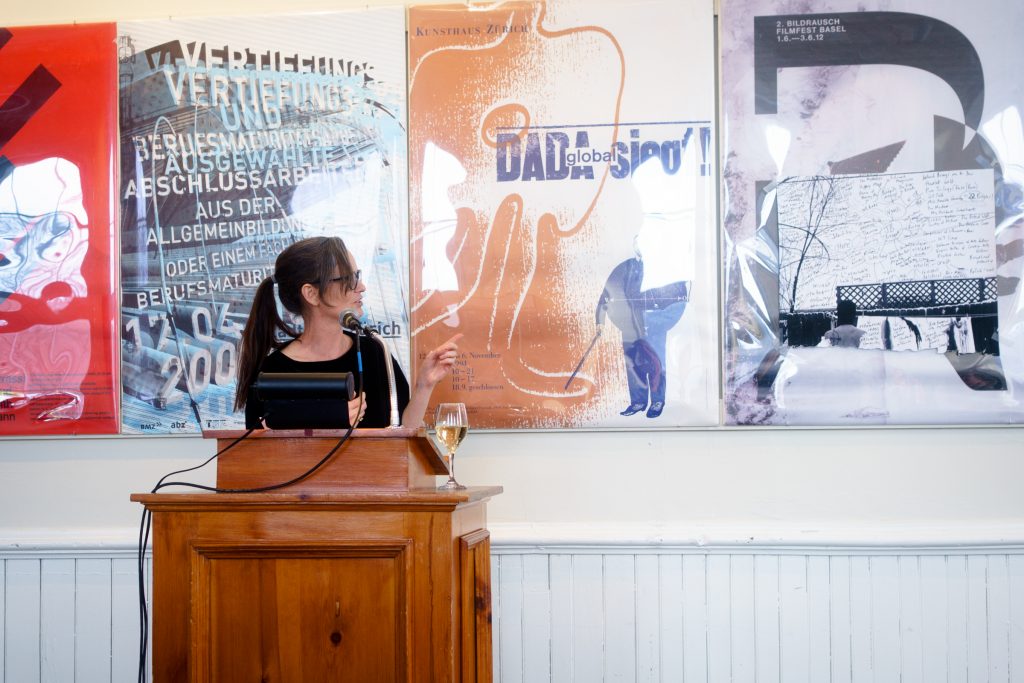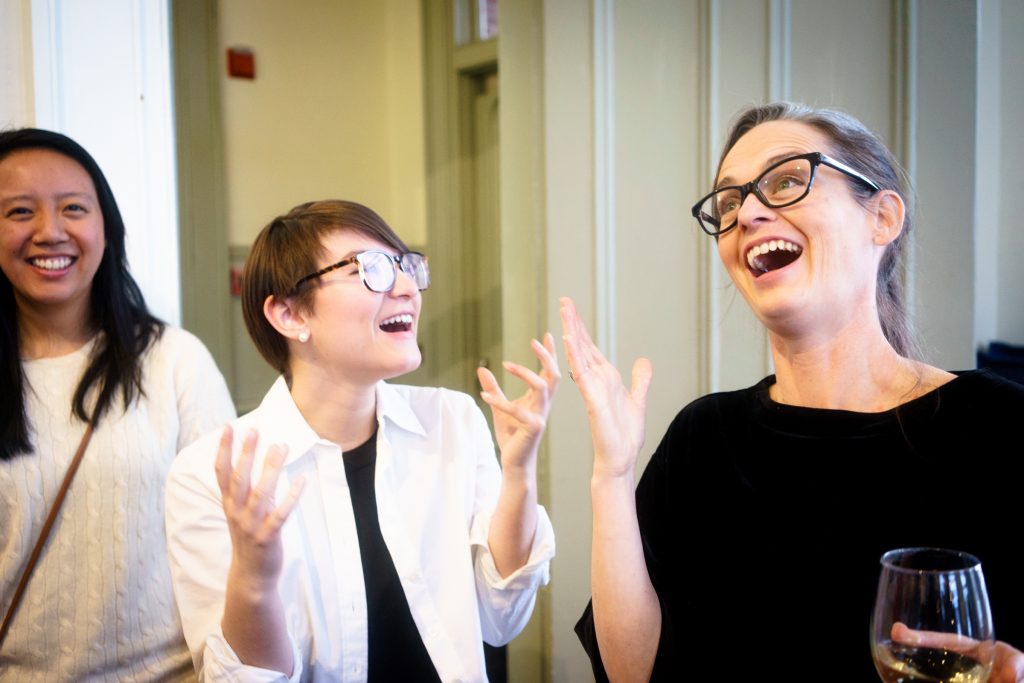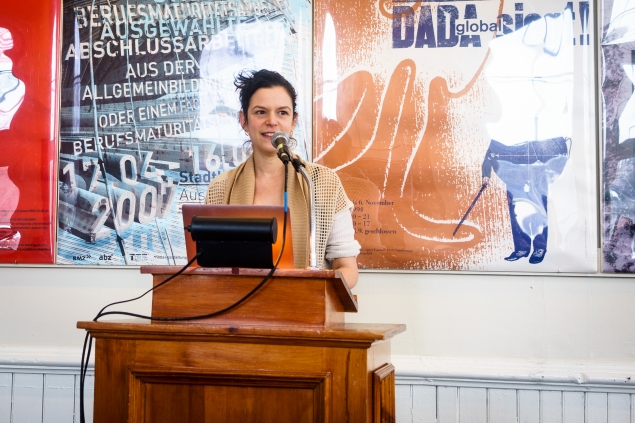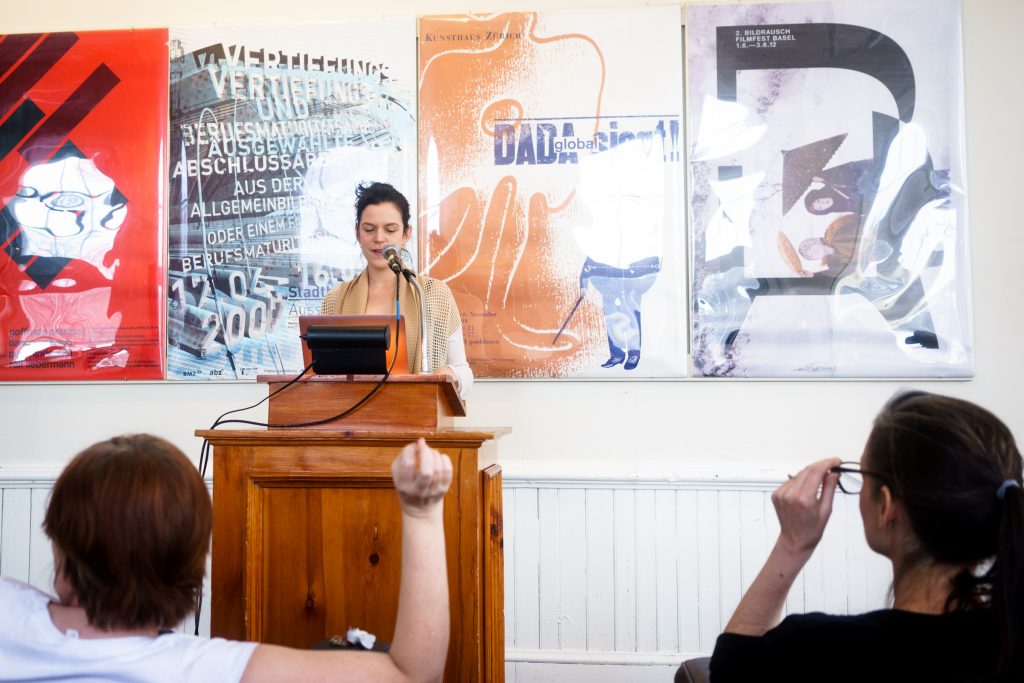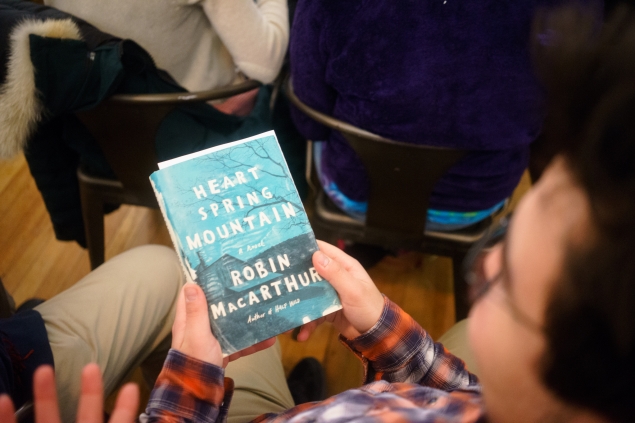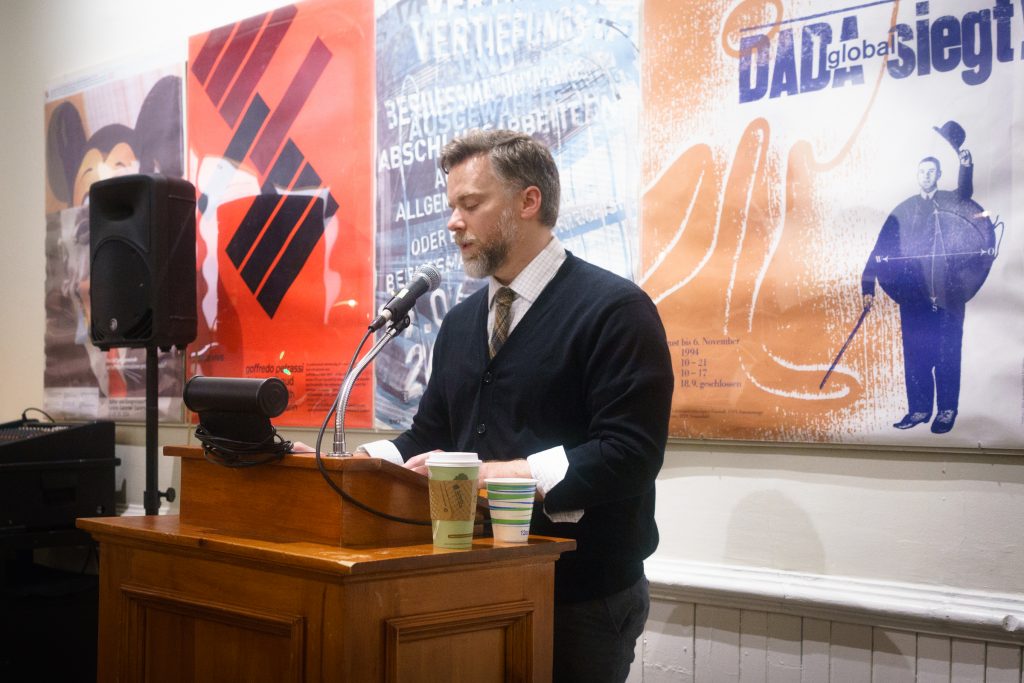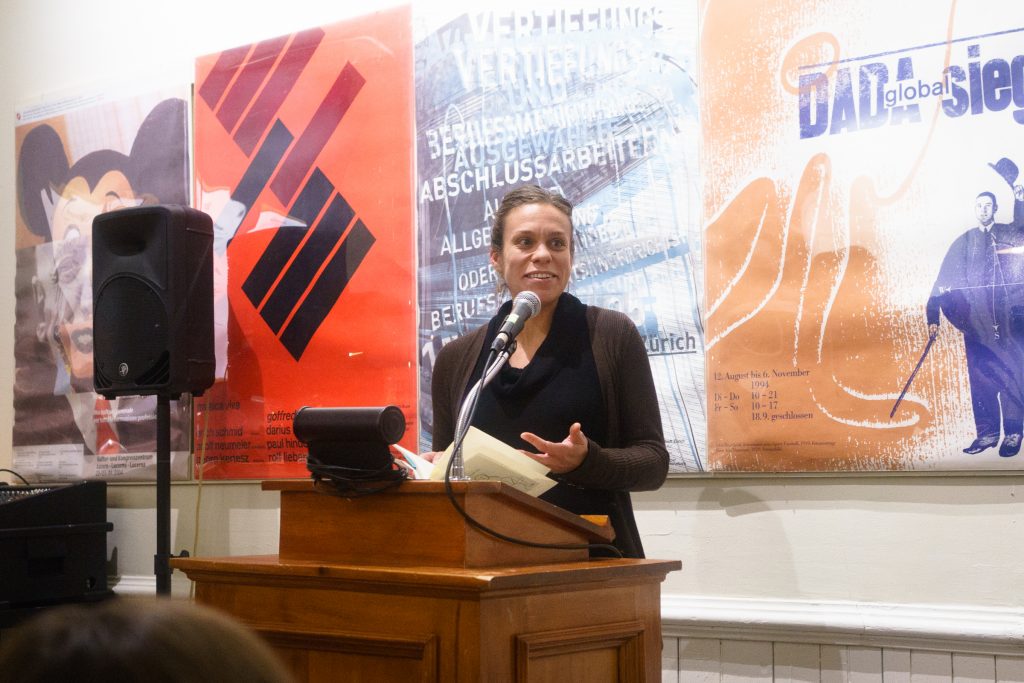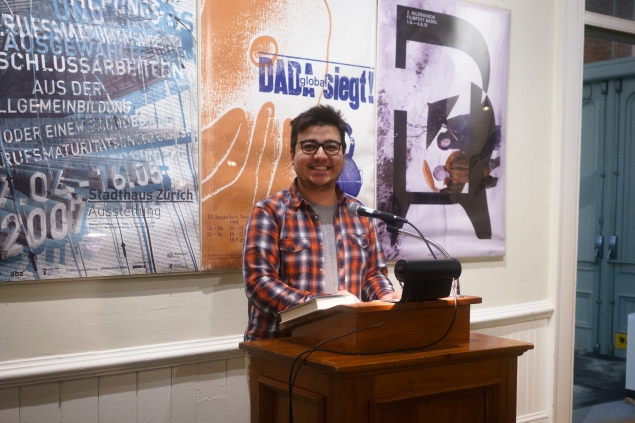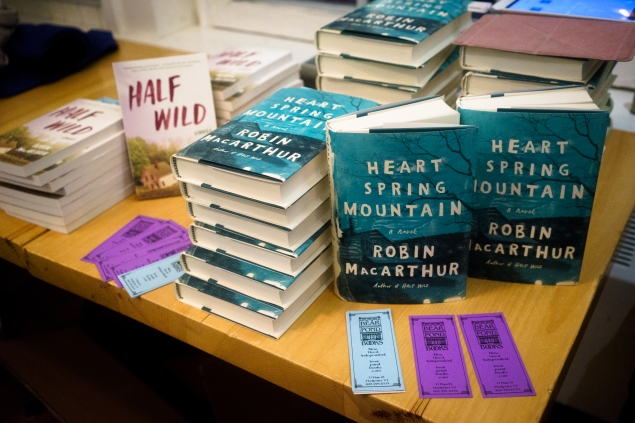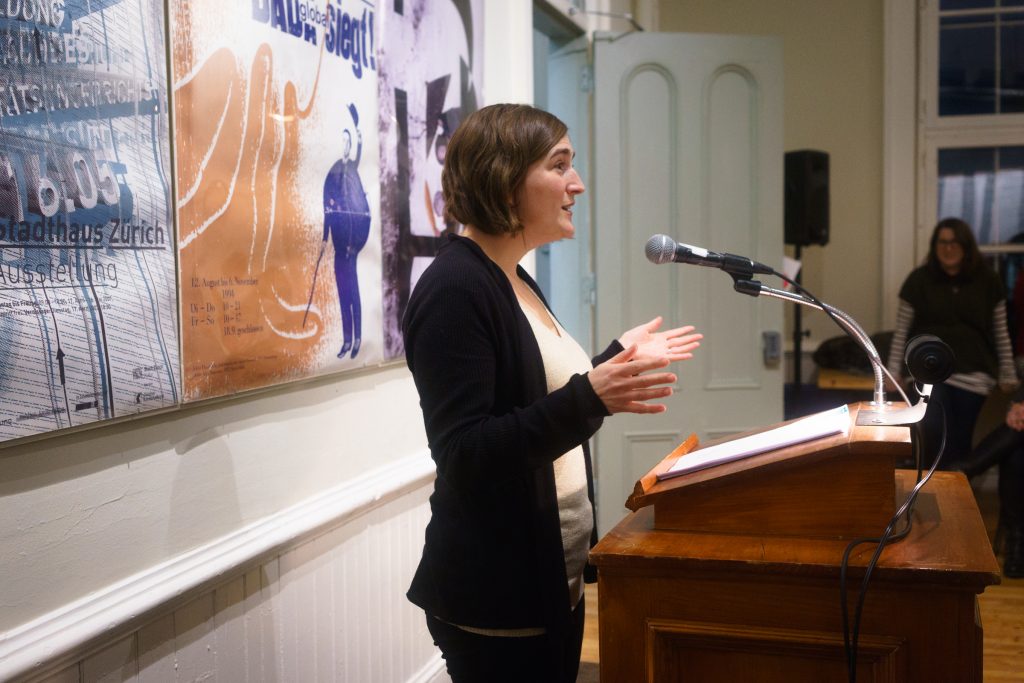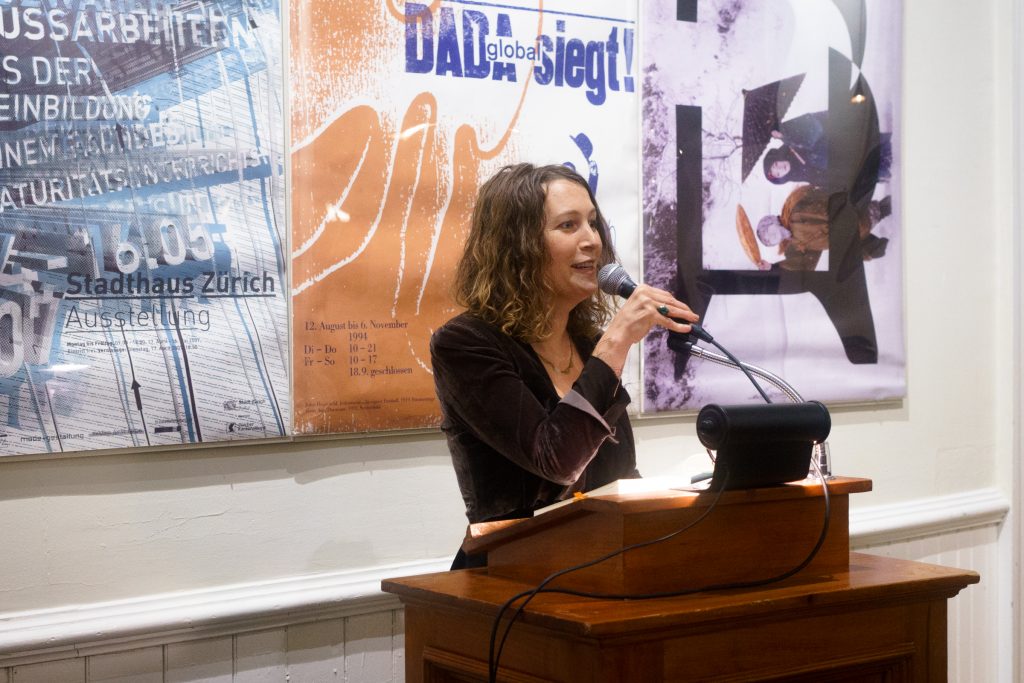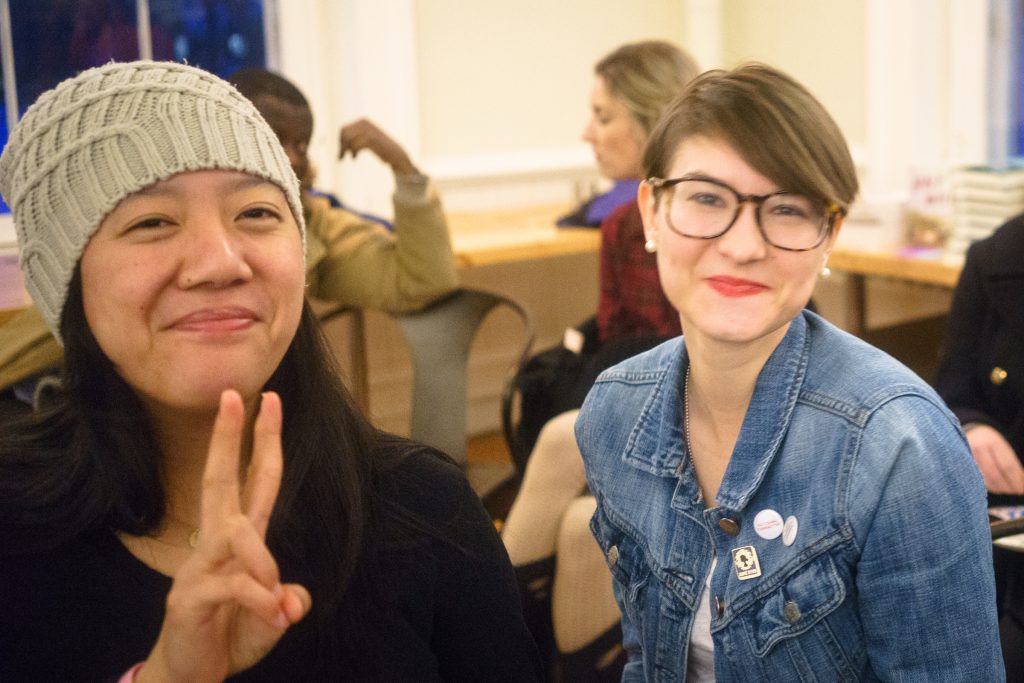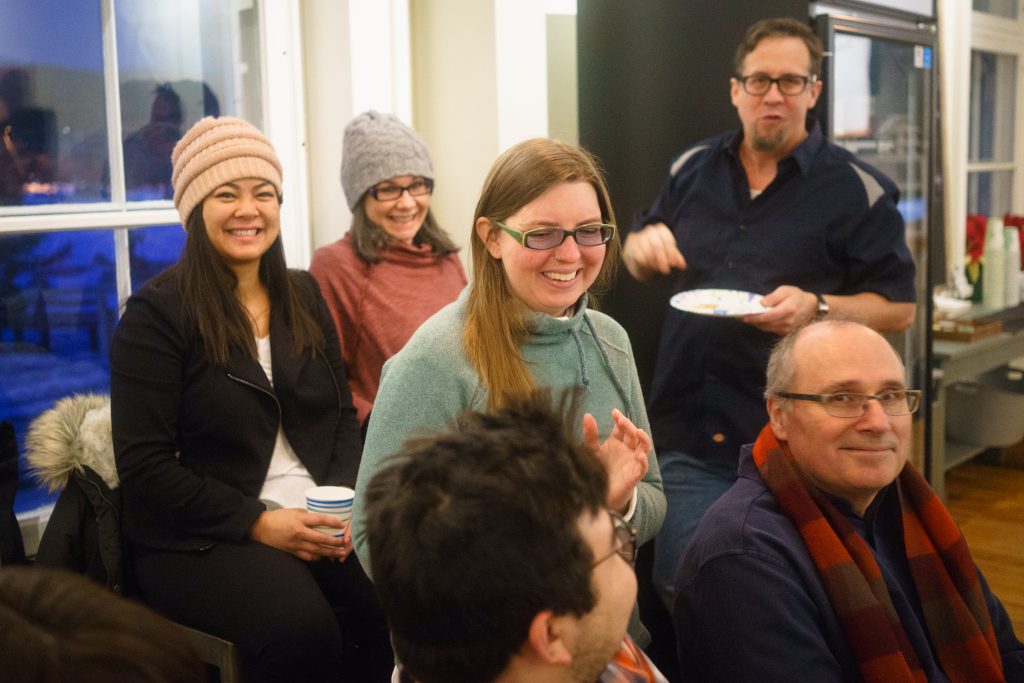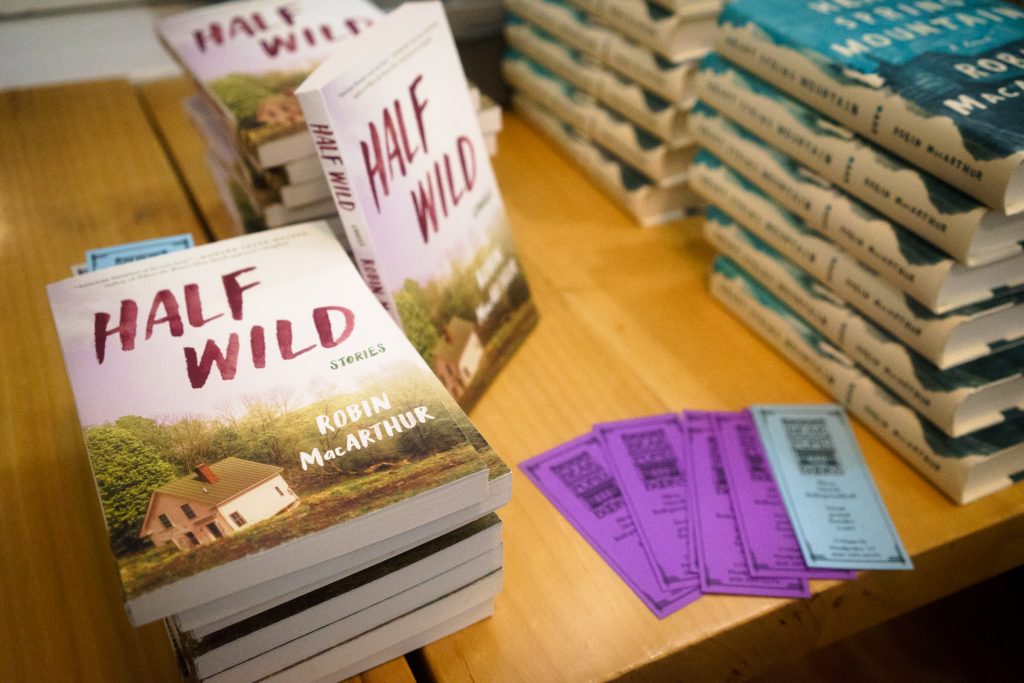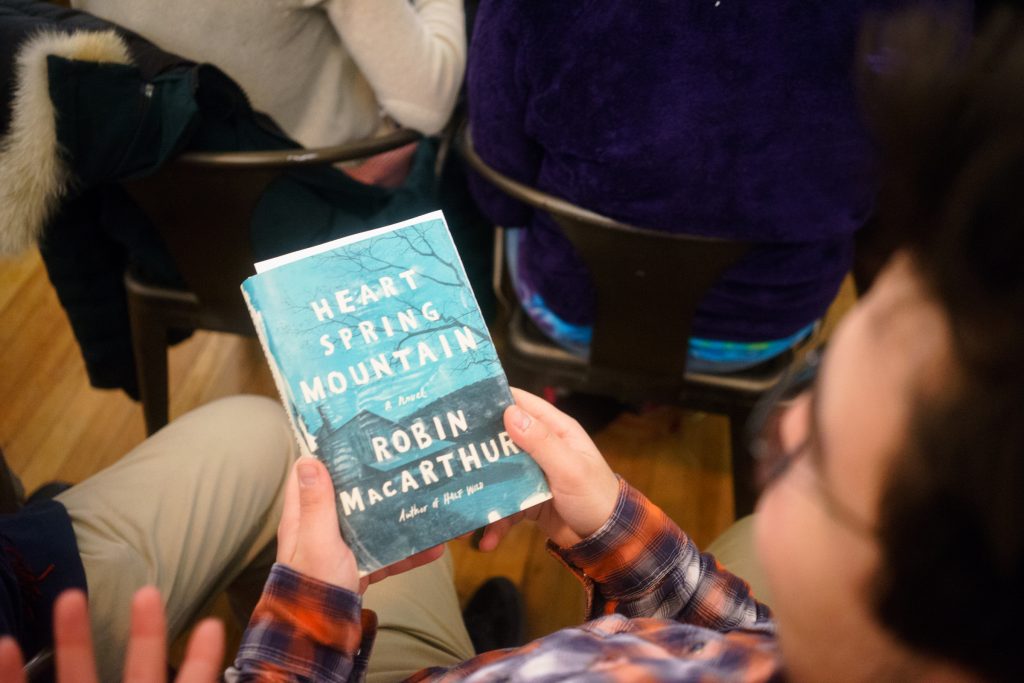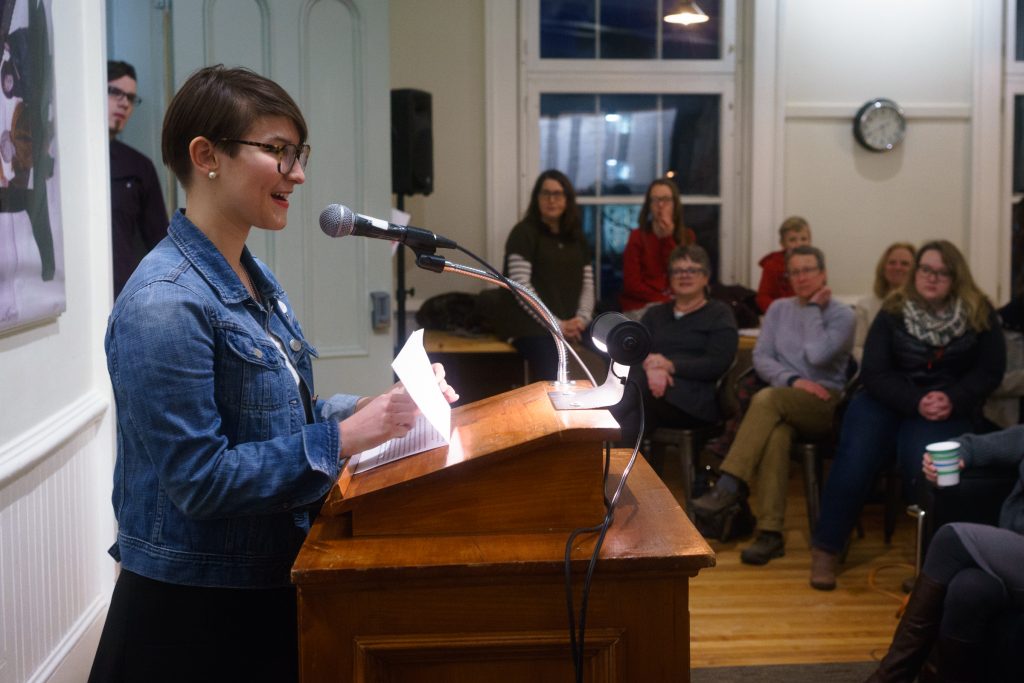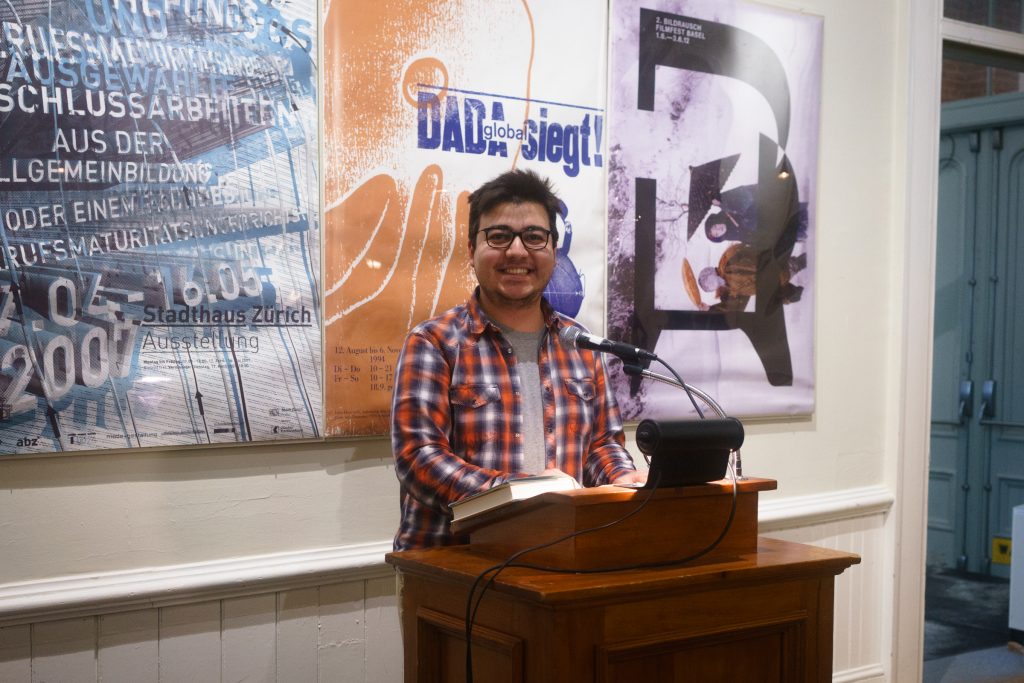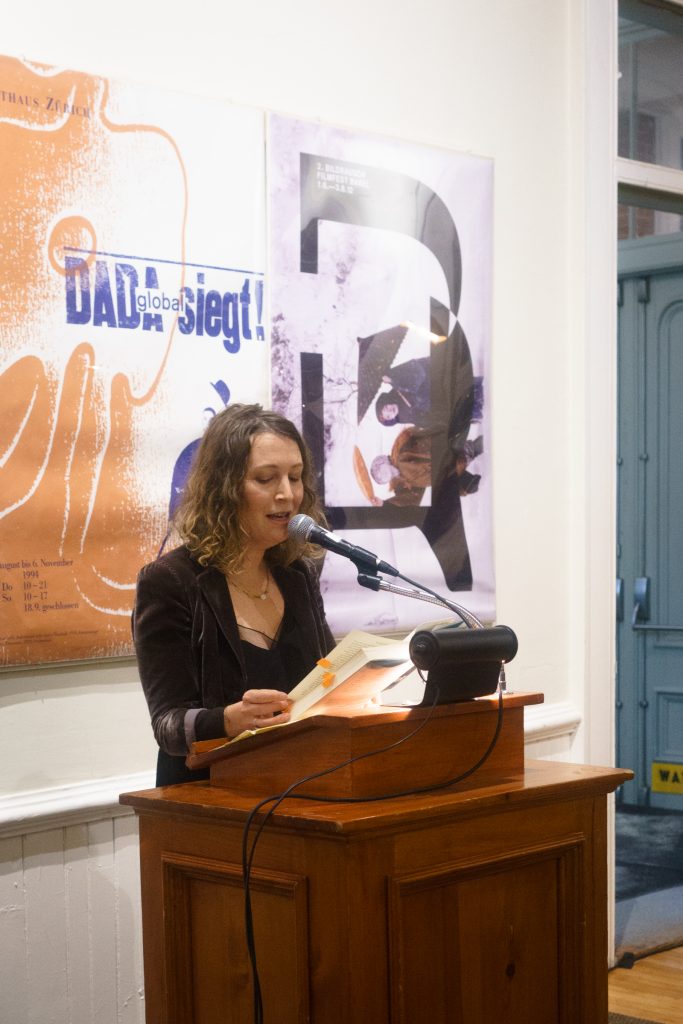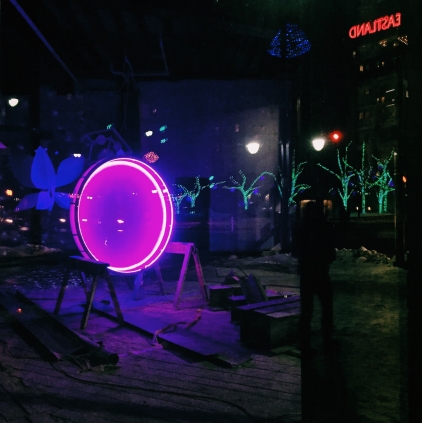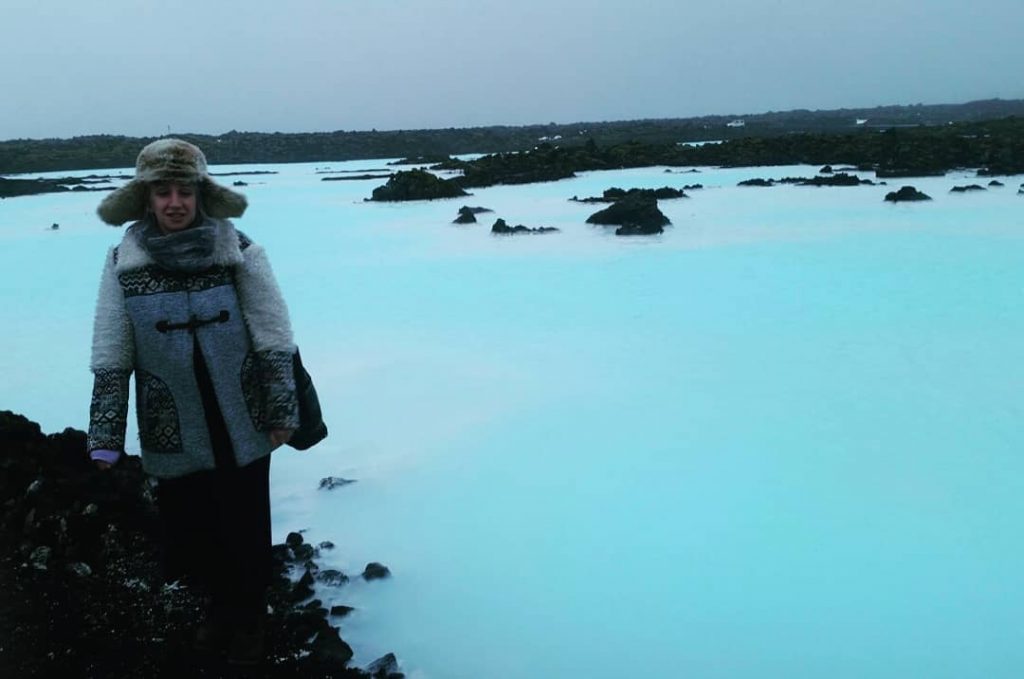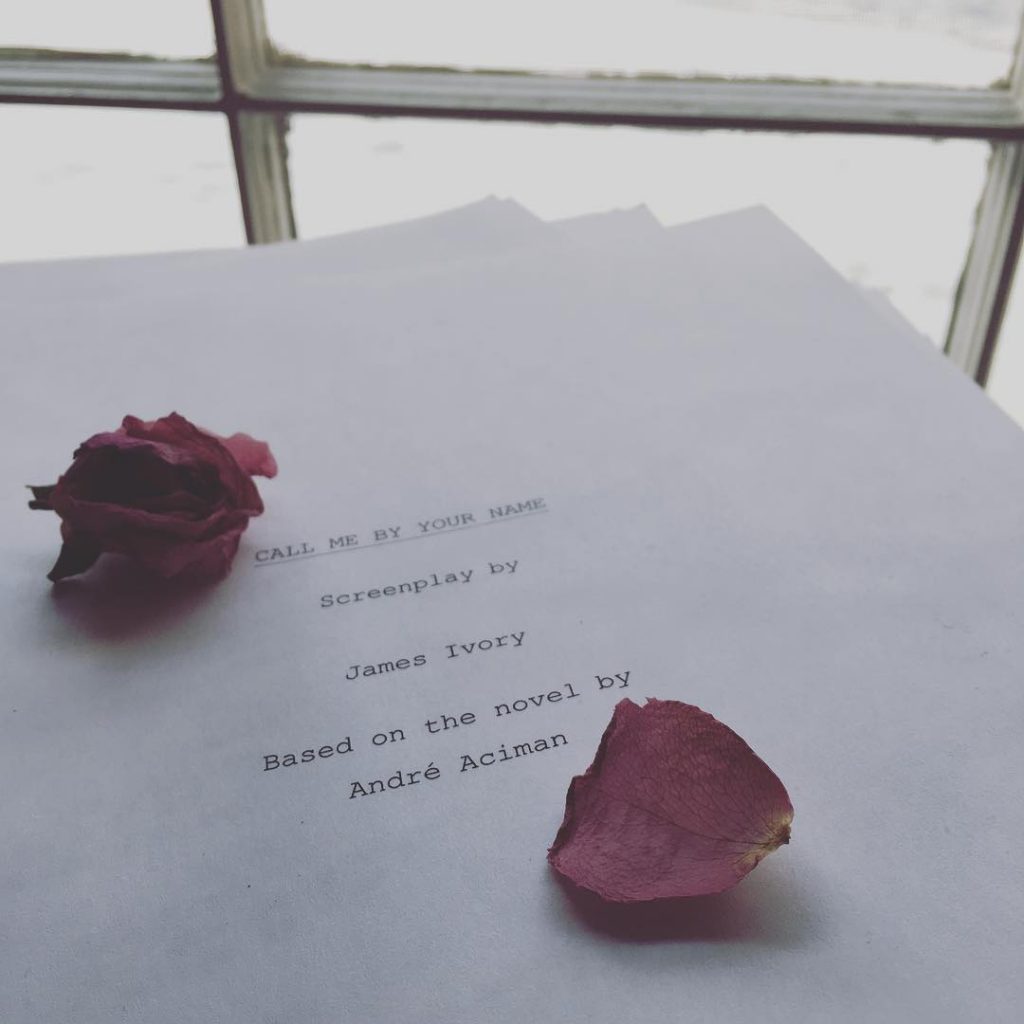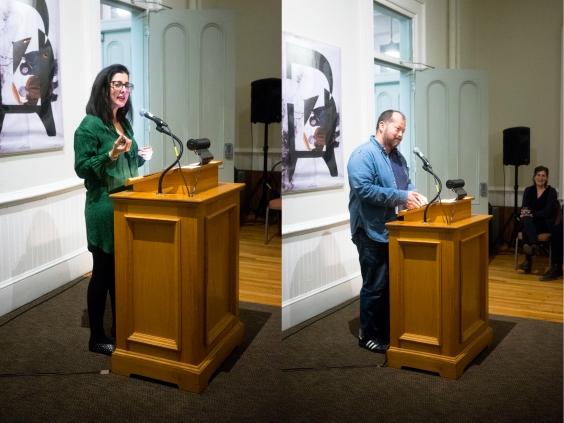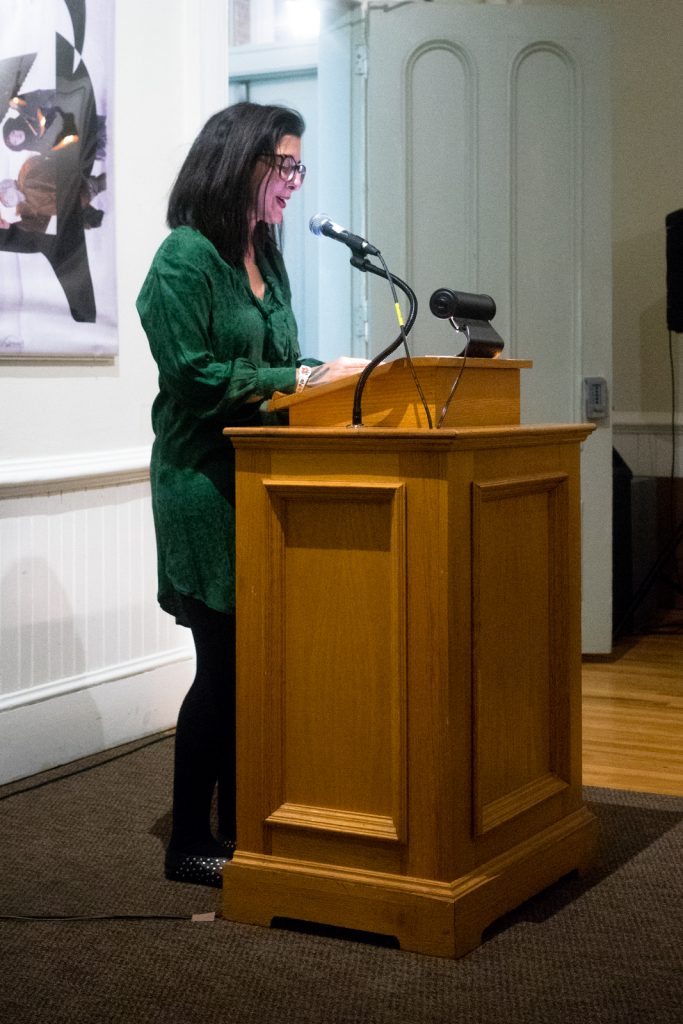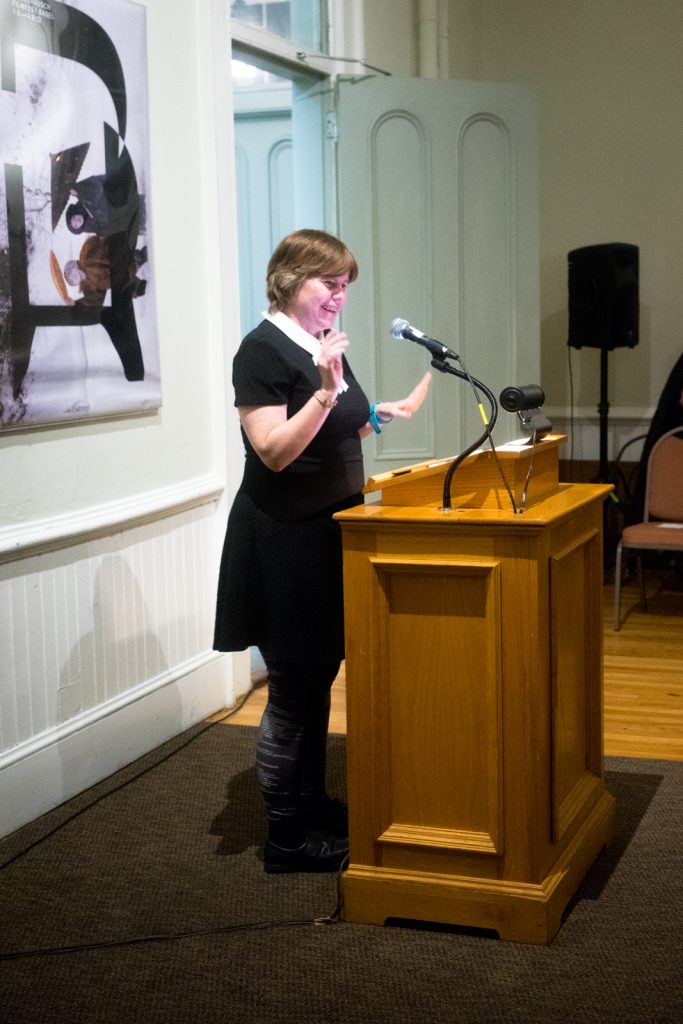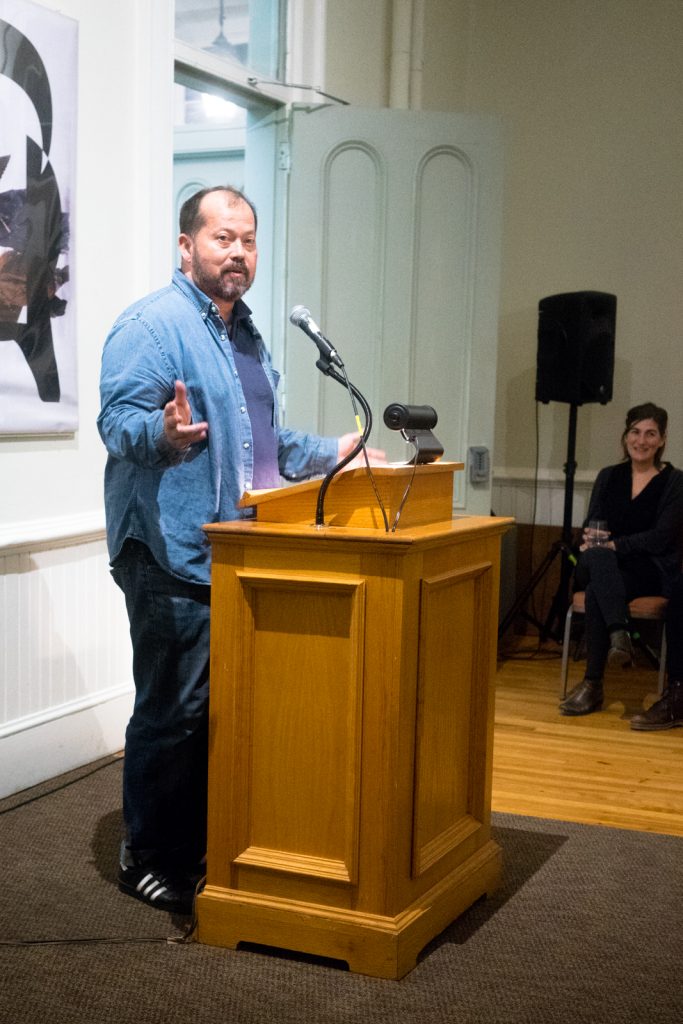Over the past year, the second-year students in VCFA’s MFA in Writing & Publishing program have been diligently, quietly plugging away at their thesis projects. This is their last semester to complete them. For such a close community of writers, this looming graduation date brings equal parts panic, relief, and sadness. Right now, they’ll be in the thick of crunch time. Soon, they’ll finish something they’ve dreamed of. They will graduate. And eventually, they will miss this place.
Jennifer Kathleen Gibbons, Jad Yassine, and Gina Tron are all but about to finish. They are working across multiple genres, encompassing creative nonfiction, poetry, and memoir. I asked them how they’re faring, how they handle difficult aspects in their writing, how VCFA as a whole has helped them out, and how much coffee they really drink.
What’s your thesis about?
Jennifer: My thesis is a memoir about my connection with a cold case. It now has a (hopefully) happy ending.
Jad: It’s a collection of poems, which will hopefully be called Root Beer. The poems mainly fall into two different sections: in Lebanon and in Vermont. It’s about the experiences of the foreign. But it also has glimpses of these personal moments that have nothing to do with America.
Gina: It’s about making a copycat threat in high school after Columbine. It’s about being accused of wanting to shoot up my school.
How far along are you?
Jennifer: It has a beginning, and I’m slowly but surely coming to a middle. I am happy to say because of recent developments, it will have a new ending.
Jad: It’s supposed to be 50 pages or more. Right now I have a total of 47 pages of material. That includes things that are three-fourths polished and things that still need a lot of work.
Gina: 135 pages. I hope to finish the book by May, but I don’t know if that’s too hopeful. I want to at least make a big dent in it. It’s not just a memoir, it also incorporates newspaper articles, diary entries… it’s pseudo-journalism. A little sprinkle of journalism.
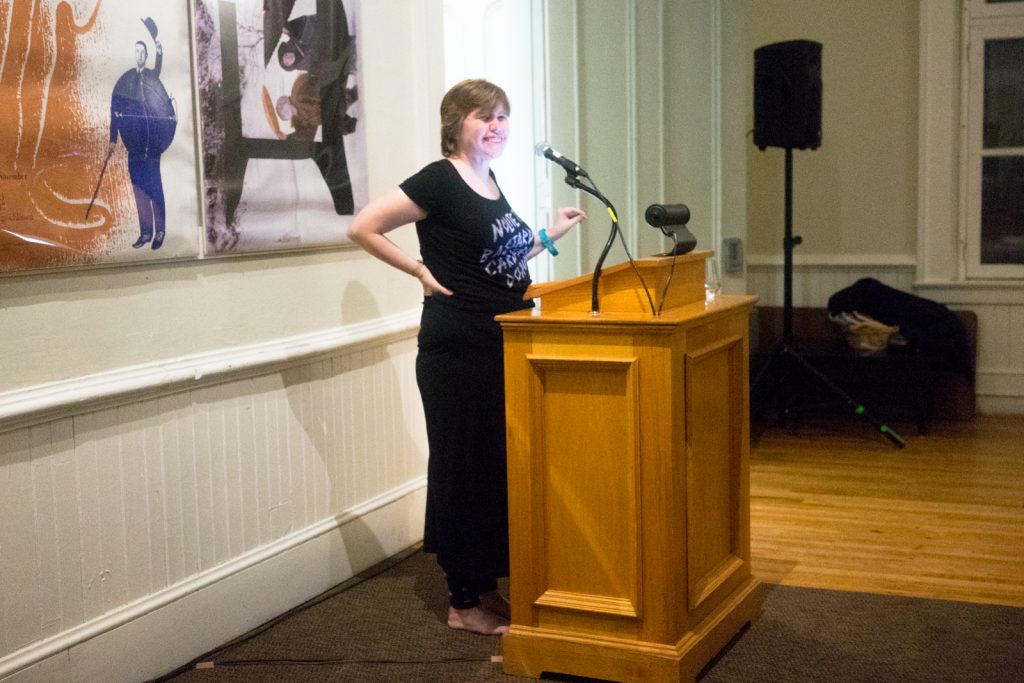
Jennifer Kathleen Gibbons
How have your advisors helped you?
Jennifer: Jessica Hendry Nelson has been great—she told me to edit stuff out about a terrible boss I had years ago. When I did that, it was like the chapter in question had a facelift. It just flowed so much better.
Jad: Julianna Baggott has been helpful from the start. From the fall semester, I almost knew that this is the person I wanted to work with. The way she talks to me about my poetry (and poetry in general) [has] a lot of energy… that I respond to positively.
Gina: Porochista Khakpour has [been] very encouraging. She loves the project. I feel lucky to work with her.
How have your fellow students helped you?
Jennifer: They have been there for me and believed in me when I didn’t believe in myself. They will never know how grateful I am to them.
Jad: It was great to present our work in the fall semester in thesis seminar. I thought that it was such a good space to put work out.
Gina: I’ve brought many pieces last semester to different workshops, and the feedback has been really great—lots of constructive criticism from both classmates and professors. They’ve given me ideas that I wouldn’t have thought of on my own.
What are your goals with the thesis? Do you want to publish it right away or have a few more years to edit and edit?
Jennifer: I want to get it published by June 2020—the 40th anniversary of Suzanne Bombardier’s death. I’m hoping by then there will be a final resolution and the book will be a tribute to her life, not the way she died.
Jad: Often times, only a handful of [thesis] poems make their way to the poet’s first collection. So I envision only a handful of the poems being published. I would also like to see some individual poems get published separately in journals, just to get started.
Gina: My agent is already pitching it as a book proposal. About 75 of those pages are included as a sample. I would like to get this picked up while I’m writing it, but I would like to finish it and resend it to my agent for another look.
What are you going to miss about VCFA when you graduate?
Jennifer: The teachers and my cohort. The town.
Jad: The freedom to sit down and write. Which isn’t to say that we lose that when we graduate, but it becomes an individual effort.
Gina: So much. I’m already very sad that it’s almost over. I just love the structure and the peer support. I already have withdrawal symptoms.
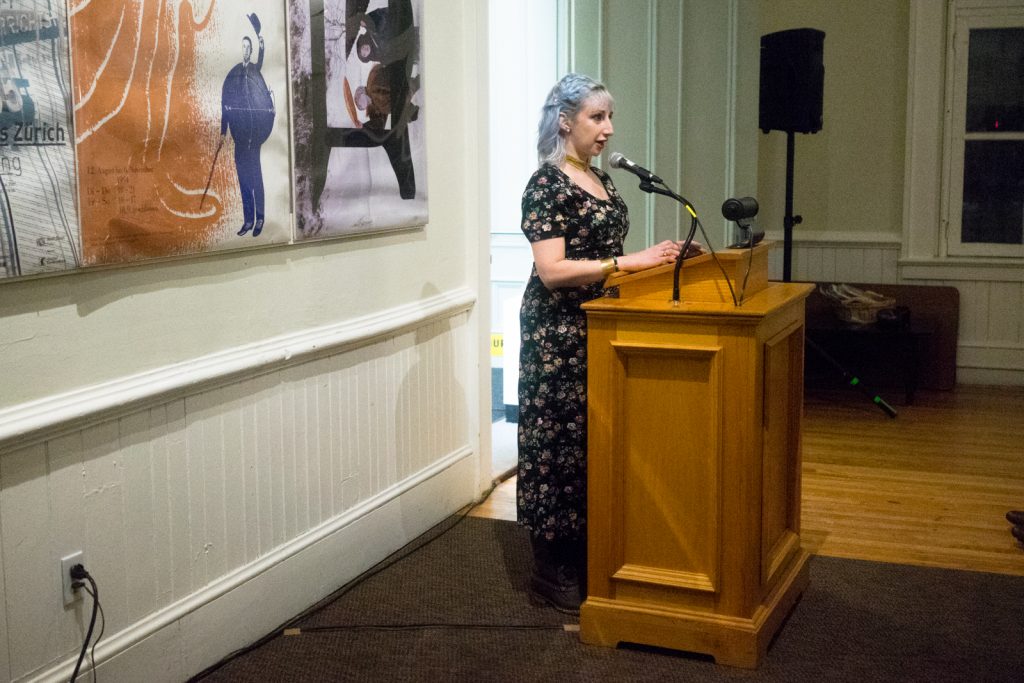
Gina Tron
Do you have any pre-writing rituals or superstitions?
Jennifer: I do Morning Pages every morning. I picked up the habit from The Artist’s Way and it helps me so much. I write in Peanuts notebooks, good grief, Charlie Brown! I also must do 750 words a day on the website 750words.com. I write with Uniball pens.
Jad: None. The only thing that I need is to have written something in my head first.
Gina: Definitely no superstitions. I try to write 1000 words a day, in general, make some progress. It doesn’t always happen, but then I’ll read books that are about similar topics. It’ll spark ideas on my notepad, and it’ll give me ideas on what to include.
What do you do to keep yourself motivated? Coffee, meditation, long walks on a hypothetical beach, etc.
Jennifer: Coffee for sure. Last year I had a terrible bout of writer’s block. I always thought writer’s block was bunk. But when it happened to me, it was one of the most painful periods of my life. I made myself do something outside of writing for three weeks. I colored every day in adult coloring books. I did my morning pages. I watched movies. I started doing bullet journals. I made collages. Then on the fourth week, I sat down and started writing again. It wasn’t magic. It just worked itself out.
Jad: In this moment, it’s the need to finish the thesis. But in general, it’s the innate need to communicate through writing. We need to tell a story, we need to pass on information.
Gina: I’m pretty disciplined in general. I’m a workaholic. As I became a freelance writer, I taught myself how to be disciplined. I work probably 15 hours a day on different stuff: freelance writing, day job, thesis, other poems, submitting work. I’m just crazy.
What’s the most focused you’ve ever been?
Jennifer: Definitely here, and the VCFA Novel Retreat. I want to write this story and get it right. It needs attention and care.
Jad: When I wasn’t writing, but instead I spent five and a half hours trying to complete a marathon back home in Lebanon. You start thinking about everything. From looking at a building to what did I do in the 3rd grade—everything.
Gina: A couple weekends ago, I added 30 pages in a day. I just kept going, I grabbed all of my high school journal entries, and I was super motivated. I was loving it. I was mad that I had to go to sleep. I was bummed that I wasn’t a robot.
What do you do when you hit a wall and don’t want to think about your thesis?
Jennifer: It happened before, and I cannot let it happen again. I won’t let it happen again. It’s not fair to Suzanne, and it’s not fair to me. I’ve come too far to stop thinking and caring about what will happen next.
Jad: I acknowledge that it’s ok. And then I see where I am in the day. If it’s close to bedtime, then I just go to bed. If it’s during the day, then I just get lunch. I’m hitting a wall because my body knows that there’s something else to do. So I try to figure out what that other thing is and do it.
Gina: Sometimes I just have to give myself a break. Watch a lot of reality TV, watch a lot of junk. I always feel guilty. But I tell myself, I just need some time to chill, and that’s ok.
latest jordans | UK Trainer News & Releases
